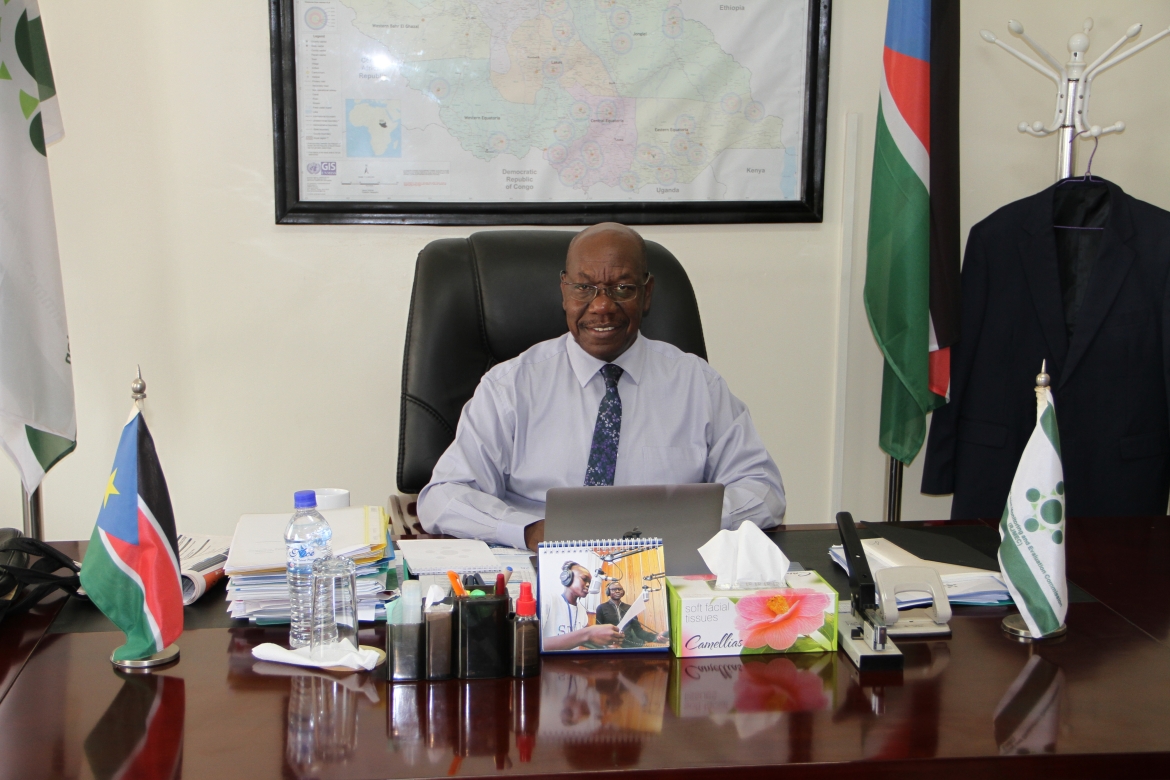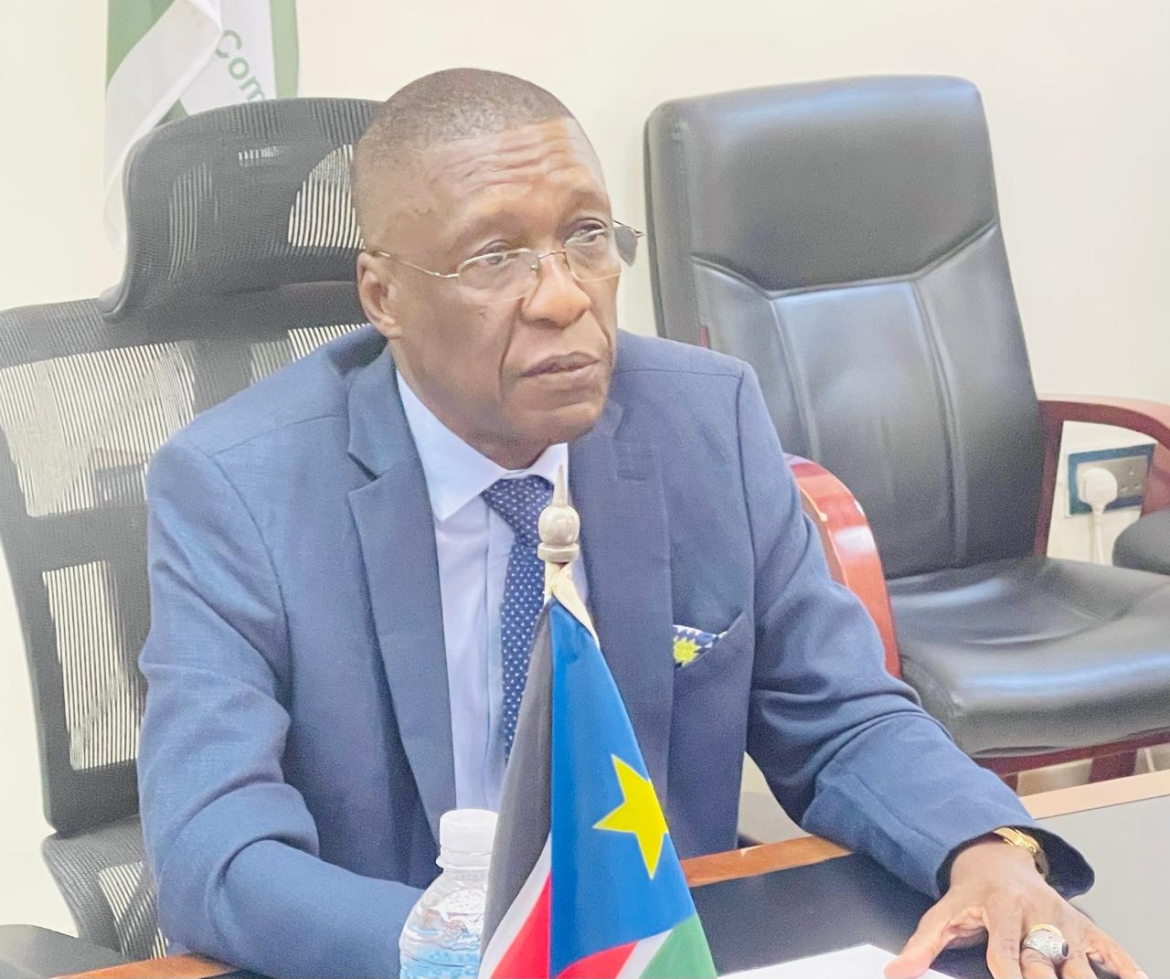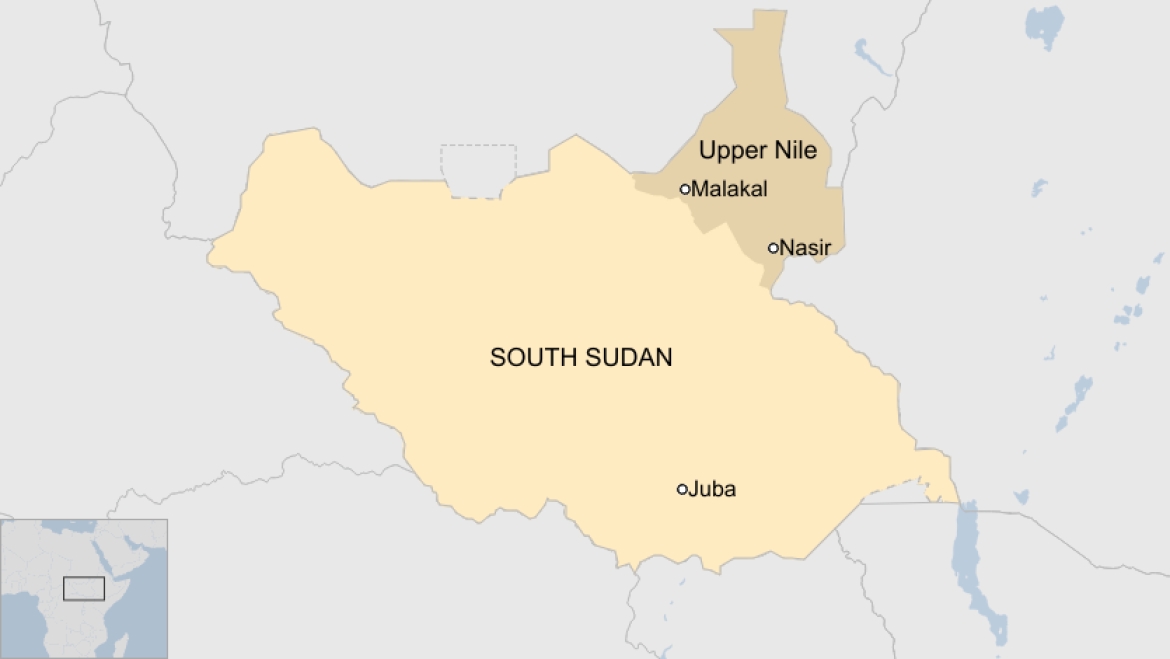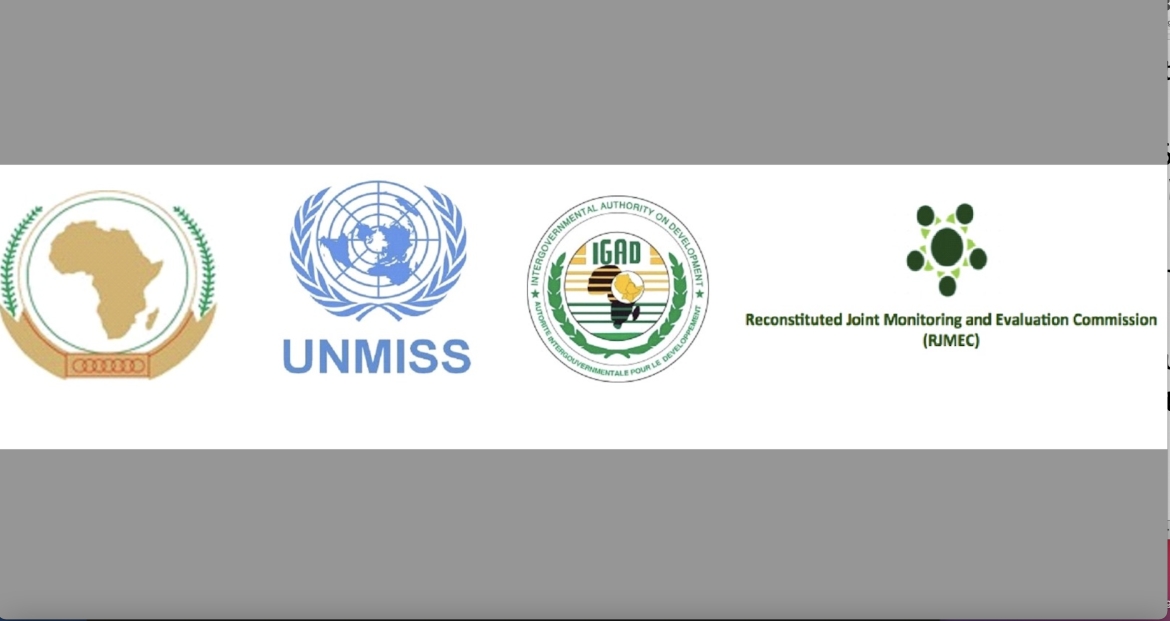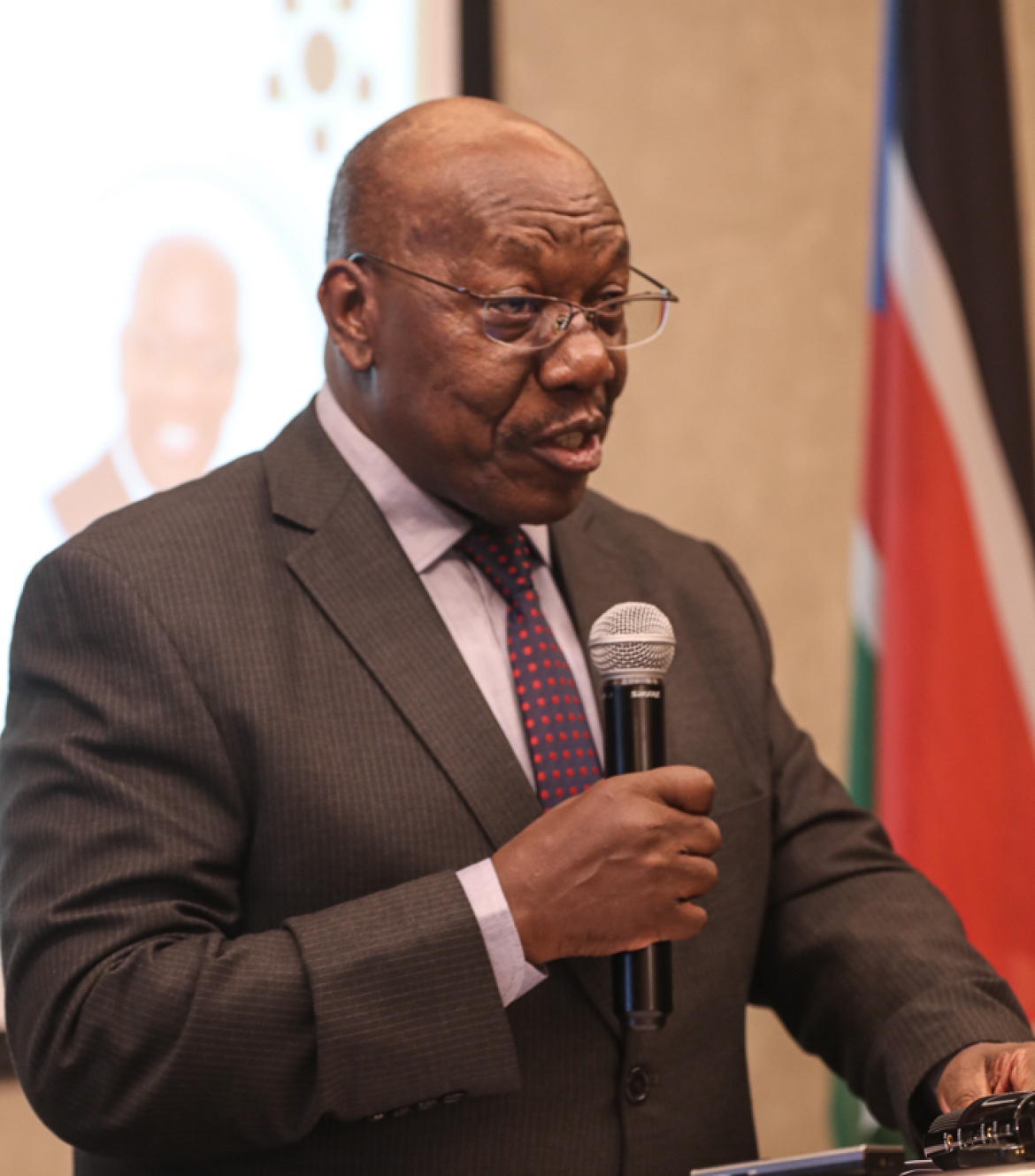Need for RTGoNU Parties present unified plan for elections to boost confidence and optimism
The author is Ambassador Major General Charles Tai Gituai CBS, Interim Chairperson of the Reconstituted Joint Monitoring and Evaluation Commission (RJMEC)
As the year comes to end, South Sudan deserves to be congratulated for raising her flag high; not only in achieving very highly is sports but also having assumed the East African Community leadership. The responsibility of leading the East African community further places South Sudan into regional and international focus at this critical period of her political life, as the county gears up for elections. Consequently, the approach, speed, commitment, and adherence by the RTGoNU on the implementation of the Revitalised Agreement on the Resolution to the Conflict in the Republic South Sudan (R-ARCSS), will be very crucial and imperative, in enhancing regional and international trust and confidence of the country and its leadership of the East African Community. I would therefore like to once again emphasise the responsibility of the RTGoNU executives at national and state levels to ensure full and timely implementation of the Revitalised Agreement.
Many people in South Sudan are discussing elections right now. According to the Revitalised Agreement on the Resolution of the Conflict in the Republic of South Sudan (R-ARCSS), they are due to be held in December 2024, one short year away. However, these conversations about elections are accompanied by both optimism and uncertainty among the people of South Sudan, because much remains to be done so that the country is fully and properly prepared for them.
Elections is a process which requires the implementation of issues covering governance, security, provision of humanitarian assistance, proper finance and resource management, effective transitional justice mechanisms and the making of a permanent constitution reflecting the aspirations of the people of South Sudan. In fact, it is a process which requires implementation of tasks from right across the different chapters of the R-ARCSS.
As we enjoy Christmas time and relax with our families and friends, it is normal to reflect on the year gone by and to consider the prospects for the year to come. Over the past year or so, progress in implementing the Revitalised Peace Agreement has been made. The reconstituted Transitional National Legislative Assembly has been busy, passing a range of legislation which provides the legal framework for South Sudan’s transition to lasting peace and stability. For example, a range of legislation concerned with improving transparency and accountability in the financial and economic sector have been enacted.
Meanwhile, the National Elections Act and the Constitution-making Process Act were enacted, which are both critical pieces of legislation for the conduct of elections. Then, at the start of November 2023, the Political Parties Council, the National Elections Commission, and the National Constitutional Review Commission were reconstituted. They are composed of members drawn from the different Parties to the Agreement.
These are key bodies connected with the conduct of elections, as they are mandated, among others, to register, oversee and regulate activities of political parties; drive forward the permanent constitution making process; and prepare and conduct elections respectively. Collectively, their effective functioning will also pave the way towards the expansion and protection of civic and political space.m In the area of the Transitional Security Arrangements, on 15 November 2023, the first phase of redeployment of the military component of the 55,000 graduated Necessary Unified Forces commenced.
However, while these are encouraging signs, they are best viewed as preliminary preparations. More needs to be done. The three bodies, the Political Parties Council, the National Elections Commission, and the National Constitutional Review Commission, require timely operationalisation and adequate resourcing to ensure their effective functioning.
The deployment of the Necessary Unified Forces is only at a very early stage with a long way to go before the full 55,000 are deployed. Then, the second Phase of training needs to commence so that the full number of 83,000 Necessary Unified Forces is deployed in good time. Similarly, there are concerns that the Disarmament, Demobilisation and Reintegration has not been seriously addressed or resourced, which is an important process ensuring that those who are ineligible for the unification are managed and enabled to return to civilian life.
On the other hand, inter-communal violence and activities of some holdout groups continue to be a source of insecurity in several parts of the country, which is likewise concerning especially as community security and social cohesion are two vital elements of preparations for elections and South Sudan’s peaceful transition.
It is important to devote sufficient care and attention to the making of a people-led and people-owned Permanent Constitution, a critical requirement for the conduct of elections in accordance with the Agreement. The process will be driven forward by the reconstituted National Constitutional Review Commission, and much work lies ahead of it, including the recruitment of the Constitution Drafting Committee, and the conduct of civic education, and public consultations.
Thus, we can see that there much that still needs to be done. Additionally, how it is done is important to consider. For example, the centrality of gender perspective is key to reducing inequalities, and so it is critical to ensure the participation of women in all political processes ahead, and in accordance with the Agreement-mandated minimum level of 35%. Equally important is giving due consideration to the Youth and People with Disabilities.
In the same way that collegiality among the Parties to the Agreement has helped result in the progress made, it is imperative that the Parties and Stakeholders to the Agreement cooperate in a collegial manner and agree on how they intend to undertake the forthcoming elections, bearing in mind that this is a Transitional Government of National Unity (RTGoNU). In the absence of this, uncertainty clouds any optimism the people of South Sudan have about choosing their leaders democratically.
Democratisation is never an easy process, and this is particularly true in post-conflict settings. Without strong political and state institutions, elements of the process of democratisation, such as elections or the normal competition between political parties, can raise tensions.
Therefore, it is essential for the Parties to the R-ARCSS to demonstrate a willingness to discuss divergent views, to seek consensus and mutual understanding, and to support inclusive multi-party dialogues in order to overcome mistrust and suspicion. Such constructive dialogue can help build consensus on practical steps that can be taken to secure the electoral environment for the country and ensure the reaching of necessary milestones including the timely conduct of elections.
A key point is about funding. Indeed, it has been one of the critical issues holding up progress in the implementation across all chapters of the Agreement. For the requisite progress to be made on the implementation of the Agreement towards elections, there is need for the Revitalised Transitional Government of National Unity (RTGoNU) to deliberately, consciously and seriously address this matter of funding. This action will no doubt instil much-needed confidence.
Emphasis on what remains to be done is not intended to detract from what has been achieved. Indeed, the month of September this year marked five years since the R-ARCSS was signed. It has been a long path, but progress has been made, and the people of South Sudan and the Parties to the Agreement deserve to be congratulated. Five years of relative peace is a commendable achievement. Now, it is important for the Parties and Stakeholders to the Revitalised Peace Agreement to capitalise on this achievement by making careful and deliberate preparations for successful elections.
I wish you all restful holidays. May the spirit of Christmas bring joy, peace, and understanding as we reflect on the journey we have travelled this past year. As we look forward to 2024, I hope that the spirit of forgiveness, reconciliation, and togetherness will strengthen our resolve to build a stable, peaceful, and secure country. God bless you all, and God bless South Sudan.


